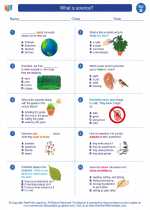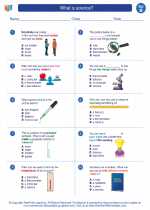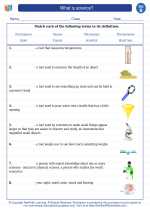Combustion Reactions
A combustion reaction is a type of chemical reaction in which a substance combines with oxygen to produce heat, light, and often a flame. The most common example of a combustion reaction is the burning of a hydrocarbon fuel, such as gasoline or natural gas, in the presence of oxygen.
Key Concepts
- Combustion reactions require a fuel, oxygen, and an ignition source.
- The general chemical equation for a combustion reaction is: fuel + oxygen → carbon dioxide + water + heat
- Combustion reactions are exothermic, meaning they release heat energy.
Examples
Some common examples of combustion reactions include:
- Burning of wood or paper
- Combustion of fossil fuels in cars and power plants
- Cooking food over a flame
Study Guide
What is a combustion reaction?
A combustion reaction is a chemical reaction in which a substance combines with oxygen to produce heat, light, and often a flame.
What are the key components required for a combustion reaction?
A combustion reaction requires a fuel, oxygen, and an ignition source.
What is the general chemical equation for a combustion reaction?
The general chemical equation for a combustion reaction is: fuel + oxygen → carbon dioxide + water + heat
Give examples of combustion reactions.
Some common examples of combustion reactions include the burning of wood or paper, combustion of fossil fuels in cars and power plants, and cooking food over a flame.
[Combustion Reactions] Related Worksheets and Study Guides:
.◂Science Worksheets and Study Guides Second Grade. What is science?

 Worksheet/Answer key
Worksheet/Answer key
 Worksheet/Answer key
Worksheet/Answer key
 Worksheet/Answer key
Worksheet/Answer key
 Vocabulary/Answer key
Vocabulary/Answer key
